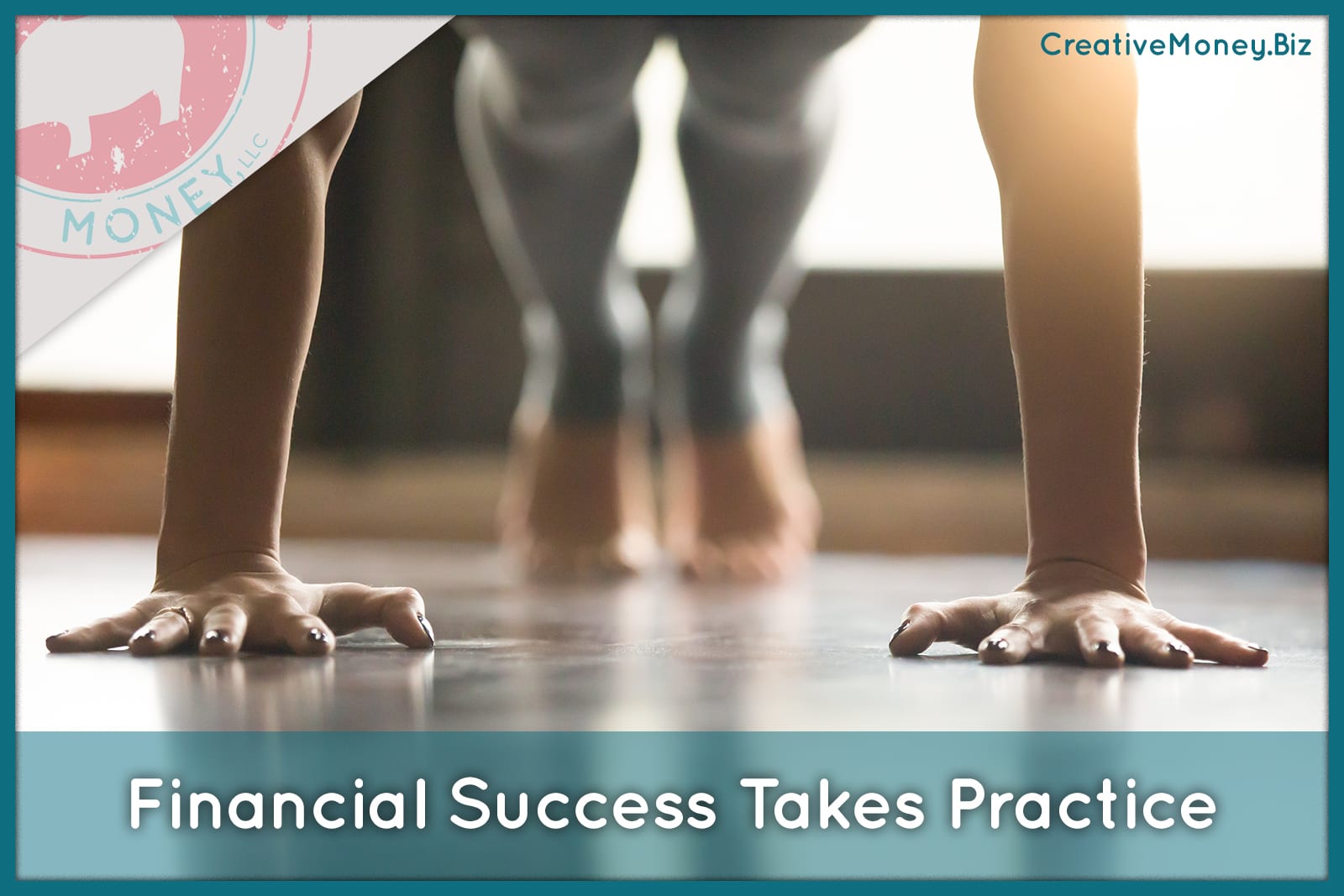 I get asked ALL OF THE TIME for the best personal finance book out there (uh, mine!). But it really depends on your criteria, doesn’t it? I don’t believe that you can approach personal finance like a topic in school…which is the way a lot of people start out trying to do it. You think that if you read enough, or read the right thing, you’ll know how to “do” personal finance.
I get asked ALL OF THE TIME for the best personal finance book out there (uh, mine!). But it really depends on your criteria, doesn’t it? I don’t believe that you can approach personal finance like a topic in school…which is the way a lot of people start out trying to do it. You think that if you read enough, or read the right thing, you’ll know how to “do” personal finance.
Instead, I believe that personal finance is like a sport. You have to jump in the pool, swing the club or bat, start participating before you feel “ready.” Because guess what… you ARE already in the pool.
With personal finance, you’re never going to be done learning, trying, doing. Click To TweetOne financial workout isn’t going to cut it
With personal finance, you’re never going to be done learning, trying, doing. I compare it to my health. I read a lot about fitness and exercise and eating right in my teens — but none of that ever prepared me for my unique challenges with low thyroid.
You have to figure out your perfect way of doing things — because there is no one-size-fits-all prescription. And you have to keep at it. One sit up won’t give you six-pack abs, and practicing good personal finance habits for one day, one week, one month, or even one year doesn’t mean you’re set for life.
And while I don’t suggest competing against anyone (your friends, your family, the Joneses, the Kardashians) in the sport of personal finance, it can be a good idea to compete against yourself, challenge yourself to do better, and set and reach goals.
Where do you start? With the basics
If you dumped a healthy, physically fit 20-year-old in an Olympic arena and told her, “OK, your event is pole vaulting. GO!” what do you think the results would be? Even someone who ate well and exercised regularly probably wouldn’t even know what to do with the pole, let alone how to vault herself over a bar dozens of feet off the ground.
Achieving a big goal like that doesn’t happen all at once; it requires a lot of practice, and a lot of training. And it always, always has to begin with the basics. The same is true of personal finance. You must:
- First, understand what goal you’re trying to reach.
- And then, work out the basics of how to practice and train to reach that goal.
Your goals will determine your habits and the personal finance “rules” you will train and follow.
You wouldn’t tell a pole vaulter to train in the swimming pool for her event. Likewise, if your goal is to pay down debt, the rules you follow will be different than if your goal is to save for retirement, or put a down payment on a house.
Similarly, every pole vaulter or swimmer or gymnast isn’t going to have the exact same training routine as her teammates or competitors. Maybe our pole vaulter has a history of weak ankles, so she needs to do special exercises to protect and train her legs, ankles, and feet.
If you have a history of, say, excessive online shopping, hoarding cash for no good reason, or cashing out your 401k for fancy vacations, your training routine will look a little different than someone whose issue is a designer shoe addiction, gratuitous giving, or fear of success.
And that’s why there’s no “best” personal finance book, no magic wand, no one-size-fits-all solution: because your needs and challenges are different from your friend who did great with Dave Ramsey’s book, or your mom who loves to watch Suze Orman on PBS, or your brother who thinks Ramit Sethi is a genius.
Sure, you might resonate with one of their methods, or you might love the Mindy Crary method — or you might need to develop your very own with the best bits of many different philosophies.
Look at books and personal finance gurus as coaches. You can learn something from each of them. But in the end, you’re going to be the one who has to go the distance. So, in my opinion, it’s better to create a plan you are comfortable with than to let someone else dictate how you will reach your goals.
I’d be honored to be one of your coaches; if you’d like to try me out, click here to get on the newsletter, get all of the free resources, among them, a sample chapter of my book, Personal Finance That Doesn’t Suck.







